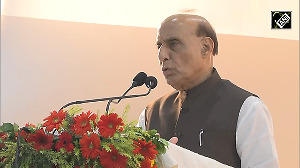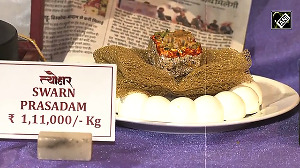Former world champions John Surtees and Niki Lauda believe Formula One needs to go back to its roots, at least in the short term, to build a brighter future.
They say that the sport, shaken by Ford's imminent withdrawal and racked by doubt and discord, could be better off if it returned to the days when the top teams ran three or more cars each.
While many in Formula One -- from the governing body to ordinary fans -- see Jordan and Minardi as essential to the show, the two champions suggested in separate interviews that it would not be the end of the world without the struggling teams.
"I don't look at the situation in Formula One as many in the media would do," Surtees, champion with Ferrari in 1964, told Reuters last week at the London launch of a Dubai-based A1 Grand Prix series.
"I look upon Formula One as something that should be the showcase of world manufacturers to show the ability that their engineers and all the people associated with them have on the world stage.
"I don't think there's really room for just private teams," added the 70-year-old who ran and drove for his own Surtees team in the early 1970s.
"If you go back to, perhaps a controversial period, just prior to World War Two and you had the might of Auto Union and Mercedes-Benz and Alfa Romeo -- you had six cars from Auto Union and six from Mercedes.
"It was quite an incredible era and the manufacturers made up a grid."
LAUDA'S VIEW
The Italian and German teams of the Fascist era were heavily funded by rulers using motor racing as an expression of national strength. There were also many more marques around in the days before global consolidation.
But long after the war, big teams continued to run more cars than they are allowed to now.
Ferrari entered four cars in the Italian Grand Prix of 1960, Surtees's debut season where the Briton was the third driver for Colin Chapman's Lotus team.
Lauda, paying his own way at a make-or-break time in his career, was BRM's third driver in 1973.
The Austrian, a television pundit after serving as a Ferrari consultant and team boss at Ford-owned Jaguar, also believed less could be more with fewer teams offering a better show.
"If some other teams stop and Bernie (Ecclestone) can use the Concorde Agreement to let the big guys run three cars...this would be the first positive step in the mess we are in," he told Reuters at the recent Chinese Grand Prix.
"The mess means interest in Formula One at the moment is going down.
"If it goes to three-car teams...we suddenly have a more competitive grid than it is at the moment with Jaguar, Minardi and Jordan," said the 1975, 1977 and 1984 champion.
While the possibility of three Ferrari drivers on the race podium might fill some hearts with lead after a season of domination by the world champions and Michael Schumacher, Lauda saw positive aspects of top teams running an extra car.
"At least you can give young drivers a chance," he said. "The teams would have to reconsider their test drivers, so there might be some completely young, crazy guys coming back in."
QUESTION MARK
The question of three-car teams has emerged after Ford announced they were selling their Jaguar team and engine-maker Cosworth.
Apart from raising doubts about Jaguar, with only weeks left to find a buyer before a deadline for entry to next year's championship, the announcement left struggling Jordan and Minardi -- both powered by Cosworth -- facing an uncertain future.
If any of the three goes to the wall, the remaining teams are obliged under the terms of the 'Concorde Agreement' between them, Formula One supremo Ecclestone and the governing body to make up the grid to 20 cars.
Ecclestone suggested in China that seven teams with three cars, all allowed to score points, was the way ahead.
However International Automobile Federation (FIA) president Max Mosley said in Shanghai that he did not think three-car teams, with the extra expense involved, were a viable long-term solution.
"I'm not at all sure they can put three competitive cars on the grid because it will cost each of them significantly more. And where is the money going to come from?" said Mosley.
"What happens if that pushes three or more teams over the limits of their finances?...It is obviously much cheaper to supply engines to a small team than to run three cars."
Both Lauda and Surtees suggested that testing should be heavily reduced, however, with the cash saved allowing teams to give test drivers the opportunity to race instead.
"You'd have a very full grid and teams running three or four cars and that I think is the way it should go," said Surtees.
"I think it has to be the survival of the fittest and I don't think it's totally a question of costs either...meddling costs money and I think the main thing Formula One needs at the moment is stability."







